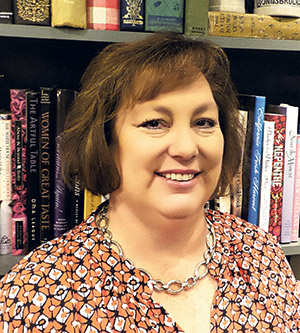Lori Foerster, TriMark Hockenbergs
Lori Foerster’s extensive and diverse background gave her a good head start as account manager for TriMark Hockenbergs, Kansas City, Kan.
 Lori FoersterAfter working in food distribution and food sales for about 17 years starting in the mid 1980s, Foerster opened up a restaurant and eight coffee shops in Omaha beginning in 2008. When her husband, who works for a food distributor, was transferred to Kansas City, Foerster spent two years running the businesses herself before she got an offer she couldn’t refuse. She sold the business and moved to Kansas City.
Lori FoersterAfter working in food distribution and food sales for about 17 years starting in the mid 1980s, Foerster opened up a restaurant and eight coffee shops in Omaha beginning in 2008. When her husband, who works for a food distributor, was transferred to Kansas City, Foerster spent two years running the businesses herself before she got an offer she couldn’t refuse. She sold the business and moved to Kansas City.
That move took Foerster from being a TriMark Hockenbergs customer to six months later becoming an employee. She joined the company as project manager, then later added account manager to her title. She has been with the company for eight years now, handling a large chain and a variety of regional chains and independents.
Q: How has restaurant design evolved since you first entered the business?
A: Design has changed as spaces are smaller and budgets are tighter. It has been interesting because my prior career taught me about design, operations and concept development. Having this knowledge has helped me with my customers.
Q: What will the restaurant industry of the future look like?
A: There will always be a chain world, but growth of independents and local smaller chains will be bigger, stronger and with more backbone. Operations that have 10 to 12 locations can be very successful and make a good living. Rather than rushing to the franchising world right off the bat, I see people keeping an operation more independent. I like to see that.
Q: How will equipment need to evolve to support the restaurant of the future?
A: Real estate is more expensive and everyone is cutting back. The first place that feels this is the back of house. Operators are looking for equipment that has a good return on investment and can do more things for their menus. People are trying to utilize multipurpose equipment more extensively, so they’re willing to spend more to build in efficiencies.
I spend a lot of time trying to stay on top of those trends and equipment updates. For example, I’m now seeking equipment for a customer that can cook menu items overnight and have their big items ready for the next day. I think we’ll see more of that, along with multipurpose equipment. But they need to spend more for this approach.
Q: What is one lesson local and regional players can learn from their larger chain brethren?
A: Chains typically have the menu developed prior to specifying equipment, but that’s not always the case with the independents, who tend to put the equipment before the menu. I don’t want to talk equipment until I see the menu. It makes the process much smoother and better in the long run.
Q: What goes into developing a proper smallwares package?
A: I have a lot of help internally and someone [at TriMark Hockenbergs] assists with those orders. I work on big things because I’m familiar with the concept and menu aspects. I focus on tabletop, like dishes, that make the difference and let my colleague fill in the pieces. I focus more on pretty things, so I can ensure the customer’s concept not only will work operationally but will look unique and fun.
Q: What lessons have you learned as an operator that help impact the way you work with your operator customers today?
A: I have a culinary background, operations background and ownership. I’m able to talk to all people within the business, from chefs to front of house people. I know their language, concerns, hot buttons; budget is always an issue. I’m able to balance all of those things, as I know how to approach it and go about the process.



